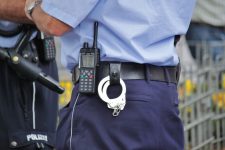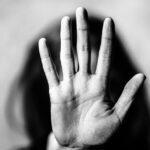Is it Legal to Film Police in NSW?

In recent years the combination of smartphones with cameras and social media has meant that anyone can photograph or video anything and everything and post it online in a matter of moments.
Nobody, from strangers on the street to friends acting inappropriately and even police officers, is immune to being photographed or filmed in public.
This has led to a number of scandals involving police officers who have been filmed by members of the public and received negative publicity over their actions.
Video evidence from members of the public has also led to disciplinary measures being taken against officers who have been filmed acting with unreasonable violence or treating members of the public unfairly.
In an incident in Sydney earlier this year, police tried to prevent onlookers filming them making an arrest at the Mardi Gras festivities.
Their attempts were unsuccessful, and the officers were later criticised by a senior officer for their naivety.
The video was posted on YouTube and showed a police officer using forceful methods of arresting a man with a head wound, attracting media attention and public censure.
Although police in NSW may try to prevent members of the public filming them, they have no legal right to do so unless the filming results in police being hindered from doing their job.
Police have no legal power to prevent members of the public videoing them, as long as they are in a public place and are not hindering police in the execution of their duty.
In addition to this, police are not allowed to confiscate cameras and recording equipment, delete images or request that the members of the public delete images on their behalf; unless they have a lawful reason to do so eg to preserve evidence of a crime, in which case police are not permitted to delete the footage.
The NSW Police media policy says “members of the public have the right to take photographs or film police officers which are observable from a public space or from a privately owned place with the consent of the owner or occupier…”
If a police officer attempts to forcibly confiscate your camera or recording equipment, they could potentially be charged with assault, face civil proceedings for trespass to person or property, or even be charged with attempting to pervert the course of justice if they destroy relevant evidence.
What the increased use of mobile phones means for police
The increased use of camera phones by the public means that police will need to be more aware when they are arresting people and dealing with members of the public.
The possibility that their actions will be captured on camera and circulated online will hopefully mean that there is more accountability for police actions, and more likelihood that if they act inappropriately they will be recorded and will face consequences.
It is questionable whether legislation in the future will prevent members of the public filming police.
Smartphones are a relatively recent technology and the legal impact of having members of the public filming police and publishing their actions online is yet to be fully assessed.
In the meantime, you are well within your rights to film police in public as long as you are not hindering them in their duties. So film away!






